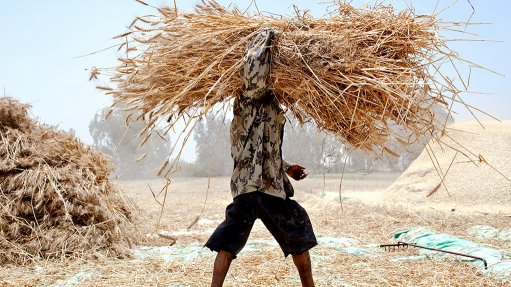
Botswana’s real gross domestic product (GDP) growth is expected to moderate to 4.5% in 2014 as the slowdown in diamond recovery and continued problems in electricity production and water supply will likely soften the pace of economic activity, International Monetary Fund (IMF) Botswana mission chief Lamin Leigh said on Tuesday.
Leigh visited Botswana from April 22 to May 2 to conduct the 2014 Article IV Consultation discussions.
“Botswana is undergoing a cyclical recovery in line with its major trading partners. The economy grew faster than expected in 2013 at about 6%, owing to the improved performance of the mining sector. However, the nonmineral sector slowed down from about 6% in 2012 to about 5% in 2013, partly reflecting recurring power supply disruptions and, to some extent, the drought,” Leigh said, adding that this growth was expected to moderate further during 2014.
He also said the 2014/15 Budget was expected to help rebuild the net financial position of the country’s government.
“While the current size of the Pula Fund is adequate for stabilisation purposes, the IMF mission welcomes the authorities’ intentions to create additional savings from nonrenewable resource revenues to transfer diamond wealth across generations. The Budget’s emphasis on improving the performance and finances of parastatals is also well placed,” Leigh noted.
He added that delivering good outcomes in the implementation of the public investment programme would require improving public financial management, including in the area of project management, monitoring and oversight, and, thus, the mission welcomed the initiatives that had been put in place to strengthen public financial management within Botswana’s government and to improve the quality of the public investment programme.
The mission also recommended that "macroprudential measures" be used to address the continued rapid increase in household indebtedness.
“In this context, the mission welcomes steps being taken to strengthen the capacity of the nonbank financial institutions regulatory agency. The ongoing diagnostic study on the current credit reporting system in Botswana, which was conducted by the authorities to identify gaps and provide recommendations on improving the current credit reporting system, is a step in the right direction.
“The [Botswana] government’s emphasis on enhancing greater financial inclusion, while committing to provide adequate safeguards to preserve the stability of the financial system, is also welcome,” Leigh pointed out.
Meanwhile, he said returning to an era of strong growth and accelerating Botswana’s transition to higher income levels would require a set of policies to reinvigorate economy-wide productivity, including addressing the skills shortage in the economy.
Such policies would include improving the quality of public spending, the efficiency of the tax system and addressing the skill mismatch in the labour market.
“In this regard, the mission commends the [Botswana] government on the skills development policies announced in the 2014/15 Budget, which should be seen as an integral part of a broader set of policy actions that include employment, investment and innovation policies, to reinforce the links between the educational system and labour market outcomes.
“The authorities should also continue to improve the country’s competitiveness, including reducing further the regulatory burden on firms to create [an] enabling environment to facilitate structural transformation of the [country’s] economy,” Leigh said.